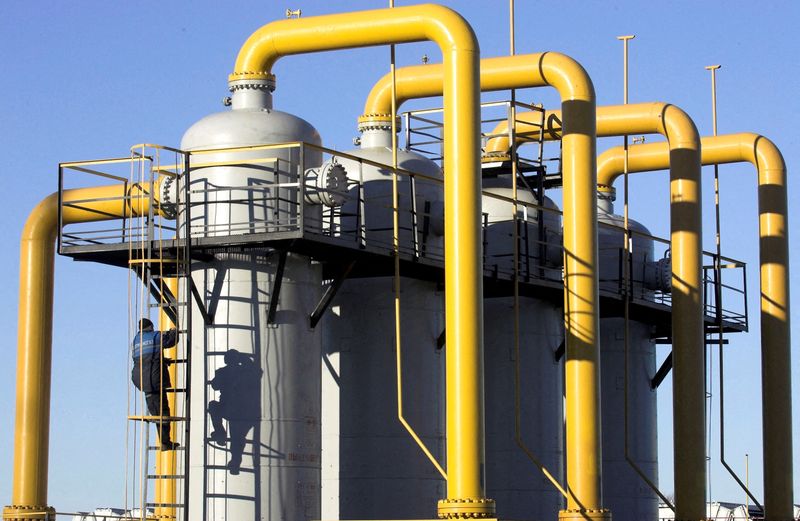By Geoffrey Smith
Investing.com -- European natural gas futures fell to their lowest in a month on Thursday, extending their declines after the European Union proposed measures to bring wholesale energy prices down ahead of a looming winter energy crisis.
By 03:00 ET (07:00 GMT), the front-month Dutch TTF contract, which serves as a benchmark for northwest Europe, was down 5.1% at 201.00 euros a megawatt-hour, bouncing a little from the one-month low of 196.05 EUR/MWh that it hit at the open.
TTF futures are now down over 40% from their peak last month, despite Russia confirming fears that it will shut down all energy supplies to Europe over the coming winter. Benchmark power prices are also on the decline: fourth-quarter baseload futures for Germany having fallen from over 1,000 EUR/MWh at their August peak to close at 635 EUR/MWh on Wednesday, while baseload for the whole calendar year of 2023 closed at 556 EUR/MWh.
However, those prices still remain at a level far above anything witnessed before the Russian invasion of Ukraine, and one broadly seen as unsustainable for the European economy in general. Energy-intensive industry is already in a deep recession in Germany, Europe's largest economy, with output falling nearly 7% between February and July. Kiel-based research institute IfW said on Thursday it expects the German economy to shrink by 0.7% next year as a result of the energy crisis, having earlier forecast growth of 3.3%. It sees average inflation rising to 8.7% from 8.0% this year due to the same factors.
On Wednesday, the European Commission had outlined plans to effectively overhaul the way Europe's wholesale energy markets work, by proposing caps on the amount that non-fossil-fuel generators and Russian gas monopoly Gazprom (MCX:GAZP) can receive for their output. It recommended the levying of windfall taxes on generators and on oil and gas companies, which would allow governments to give households and business relief from soaring energy bills.
The Commission also proposed a mandatory cut in peak demand, aiming to reduce the amount of power needed on any given day from gas-fired power generators. Gas generators' flexibility in ramping output up and down means that they almost always set the marginal price in the spot market.
The Commission's measures, which have already been foreshadowed by national proposals, will be discussed at a meeting of EU Energy Ministers on Friday.
